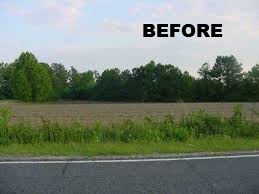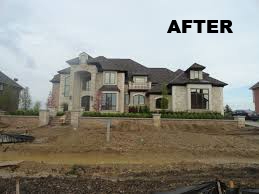Buying Land For A Custom Home?
  |
If you are considering buying land and building your dream home, keep in mind that there’s a lot more to it than one might think. Before getting too far into the process, we suggest you read this first and then follow up with us for a more customized, comprehensive approach to your unique situation. Buying Land During your feasibility you will want to find out whether city sewer, water and electricity are available. If not, you will need to calculate the expenses of installing a well and testing the soil for a septic system. The land will be zoned for residential, business, or agricultural purposes. Does the zoning permit you to build the house you want? Are there easements on the lot that will limit where you can build or how you can access the property? Ask about the long-range plans for use of the surrounding land. The land will be more attractive if the city intends to build a park or new school nearby. But if a six-lane highway or a waste treatment facility are in the city's future plans, you may decide to look elsewhere for a place to build your dream home. Even if there are no major issues with the land you’ve selected, you will also want to consider if the home you want to build will work well with the property. For example, if you envisioned a one story with a daylight basement, then you will need a lot that slopes down in the direction you want the “daylight” to enter your basement. It is a good idea to consult an architect and a zoning expert to confirm that your vision will work on the property you have selected. |
|
Soil Considerations The soil could have a combination of various conditions and characteristics. It might be fine, silt-laden soil that collapses when it absorbs excessive water, or soil with a high clay content that sucks up water and then expands under a building, causing it to buckle or shift. On the opposite end of the spectrum, your land might sit on a layer of hard rock, which is wonderfully stable, but extremely hard to penetrate. Excavation costs will be higher if your builder has to bring in heavy equipment to dig out the rock. A professional soil report will help your builder determine the best approach to engineering your site. Water Instead of paying monthly water bills, you'll be investing a substantial sum to drill the well and maintain it over time. Contact the county water department to determine how many gallons per minute you and your family will require. Talk to the neighbors to find out how long it actually takes to obtain permits to drill for water in that area, and get estimates from local companies on drilling costs. With a little detective work and help from your agent you can discover any local problems with contamination of the water supply due to toxic substances. Surface waters such as streams, ponds or lakes may be considered public property, and may require you to obtain a water use permit from the state in order to dam a creek or pump water from a supply that sits on your land. Sewer or Septic? If a septic system is required, you or the seller will pay for a “perk” test (percolation test) where a large hole is dug, filled with water and the drainage time is tested. Some areas require what they call a “winter perk” meaning that the percolation test must be conducted after October when our ground tends to be the wettest. After the test is complete, a septic designer will design a system depending on the results of the test. There are several different types of septic systems and prices can range from a few thousand to tens of thousands. |
|


